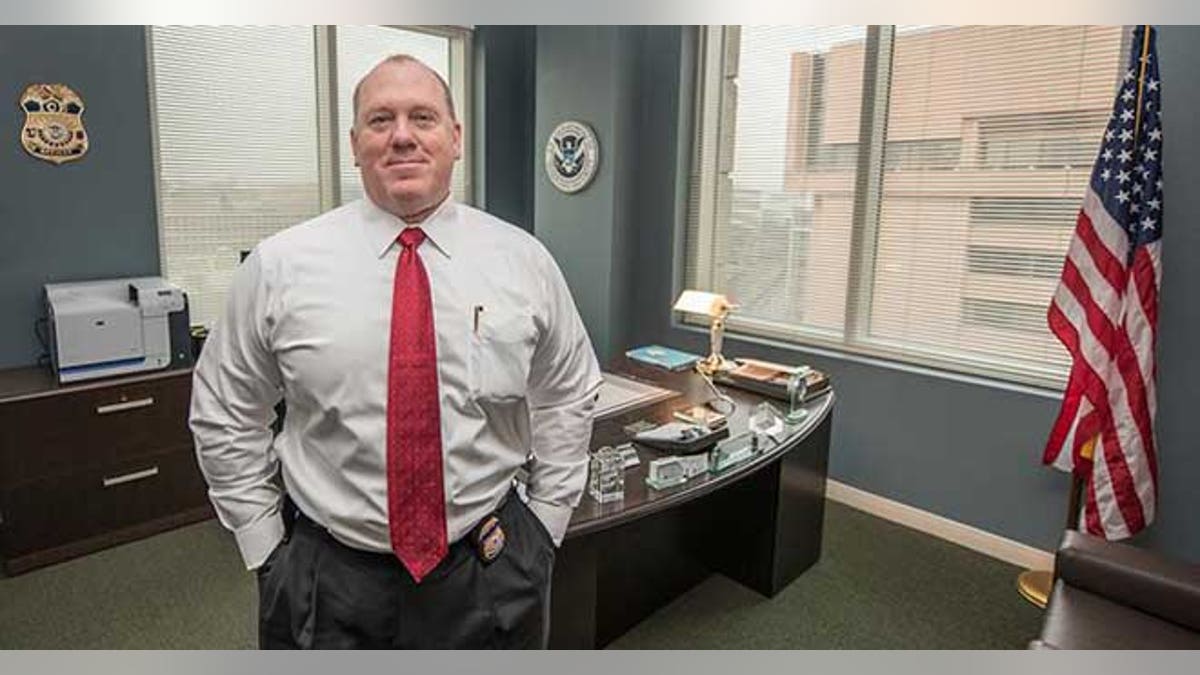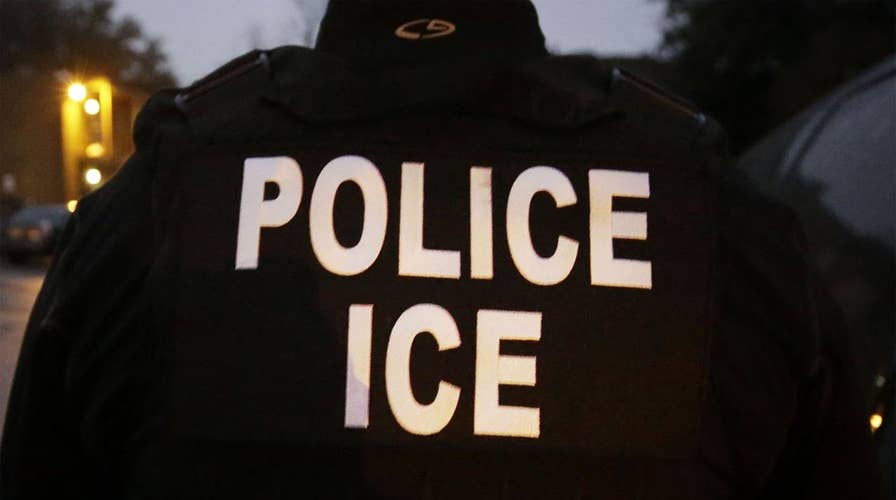Thousands of new ICE agents to be sent to sanctuary cities
Reaction from syndicated columnist Ruben Navarrette
The acting ICE director is vowing to use new resources to target undocumented immigrants in sanctuary cities – a move likely to hit resistance from mayors and local law enforcement who previously have refused to cooperate with federal authorities.
ICE Director Thomas Homan told The Washington Examiner he thinks sanctuary cities like New York and San Francisco are “ludicrous” and plans to direct extra agents to those areas.
“What I want to get to is a clear understanding from everybody, from the congressmen to the politicians to law enforcement to those who enter the country illegally, that ICE is open for business,” Homan said.
'ICE is open for business.'
Attorney General Jeff Sessions also traveled Friday to Philadelphia, one of the nation's biggest sanctuary cities, to call out the local government for not cooperating with federal immigration policies. He said such cities “aren’t giving sanctuary to law-abiding people but criminals” and urged Philadelphia to “reconsider carefully the harm they are doing to their citizens.”
When the supposed agent surge starts is still up in the air -- and contingent on funding as well as the sometimes sluggish pace of federal employee vetting and hiring.
ICE currently has more than 20,000 employees in 400 offices across the country as well as agents in 46 countries. It has an operating budget of about $6 billion. Adding another 10,000 employees, as President Trump has indicated he wants, will cost millions.
For example, in fiscal 2017, ICE requested $6.6 million to hire 100 new officers.
An ICE spokesperson told Fox News there is no specific operational plan or timetable in place yet but that the agency will focus new resources that come their way on places that don’t cooperate with detainer requests.
"As Director Homan stated, uncooperative jurisdictions have a higher rate of criminal alien releases than in places that honor ICE detainers,” the ICE official told Fox News. “As a result, ICE is forced to focus additional resources to conduct at-large arrests in the field in these non-cooperative areas."

Thomas Homan (Immigration and Customs Enforcement)
The requests, sometimes called immigration holds, are a vital tool the agency uses to go after illegal immigrants. The detainer asks local authorities to hold a person in jail up to 48 hours beyond when he or she is set to be released so federal officials can take them into custody.
The crackdown on sanctuary cities lines up with Trump’s promised prioritization of the issue on the campaign trail. Members of his administration have repeatedly tried to link violent crime to illegal immigration – though mayors of sanctuary cities across the country have pushed back on that assertion.
“Actually, cities like Austin (Texas) are safer and have better economies,” Austin Mayor Steve Adler said in a statement. “ICE should be figuring out why that’s true and applying those lessons.”
While not a technical term, “sanctuary cities” are places that have refused to work with Immigration and Customs Enforcement officials after detaining undocumented immigrants. By law, they are required to inform the feds when they have an illegal immigrant in custody, even if he or she has not been convicted of a crime.
There are an estimated 200 to 608 local and state governments with some sort of sanctuary policy in place – however, their degree of cooperation varies. Some work with federal authorities on felony convictions while others only comply in civil investigations. There are a few places that refuse to cooperate altogether.
The Trump administration has tried to strong-arm some jurisdictions into reversing their sanctuary policies by threatening to cut off millions of dollars in federal funds.
Late Thursday, a San Francisco federal judge refused to reinstate Trump’s sanctuary cities order, which sought to slash funding to cities that limit their cooperation with federal immigration authorities. The ruling is the latest turn in the heated battle between the Trump administration and local governments pushing back on the policies.
CALIFORNIA JUDGE REFUSES TO BRING BACK TRUMP'S SANCTUARY CITIES BAN
Sessions has said that sanctuary cities like Philadelphia are violating the supremacy clause of the U.S .Constitution by limiting local law enforcement cooperation with federal immigration authorities.












































